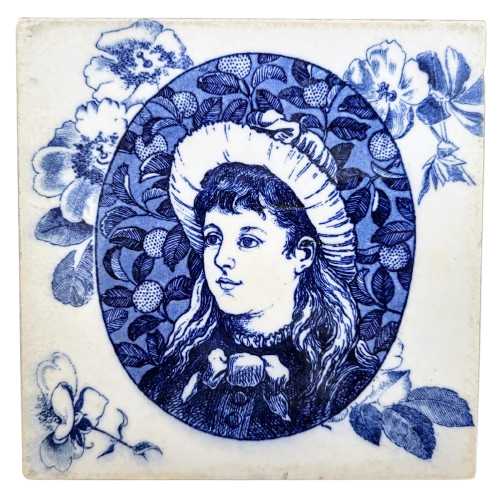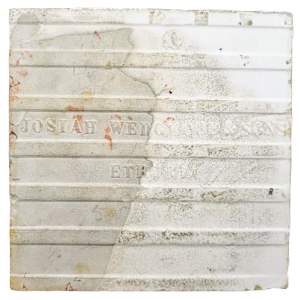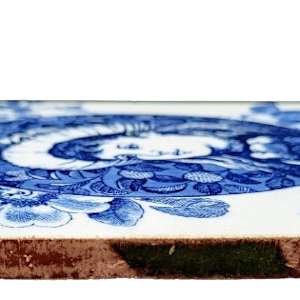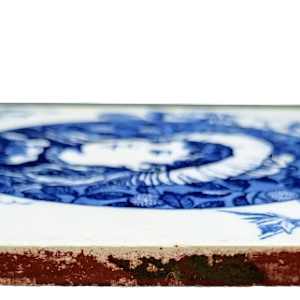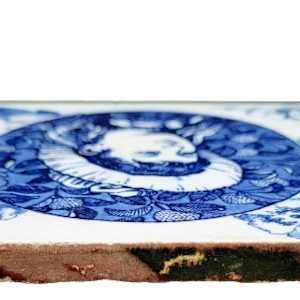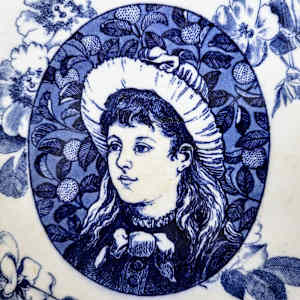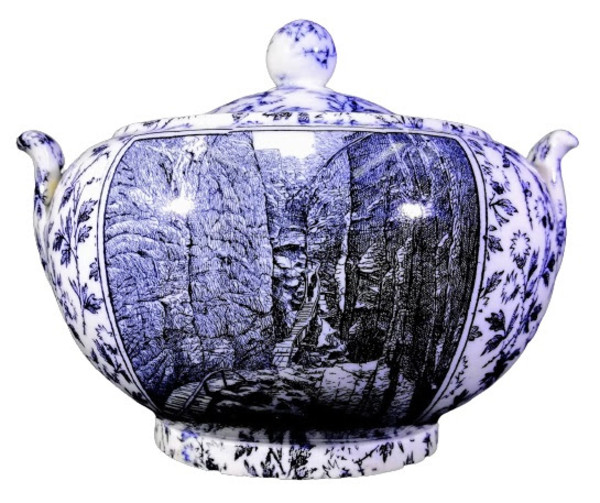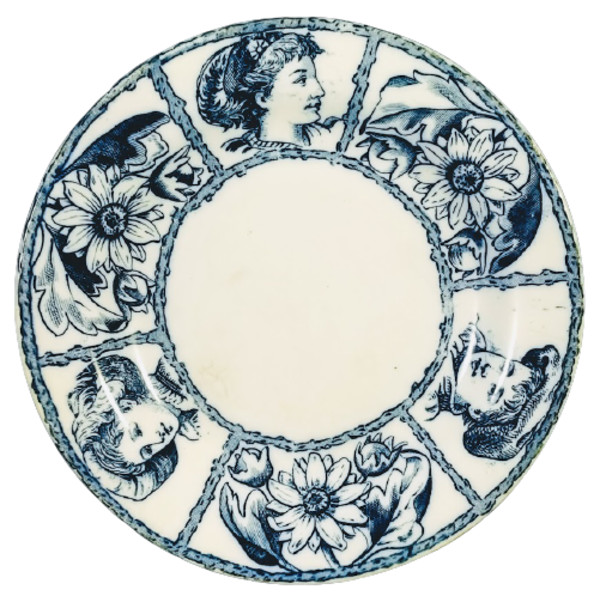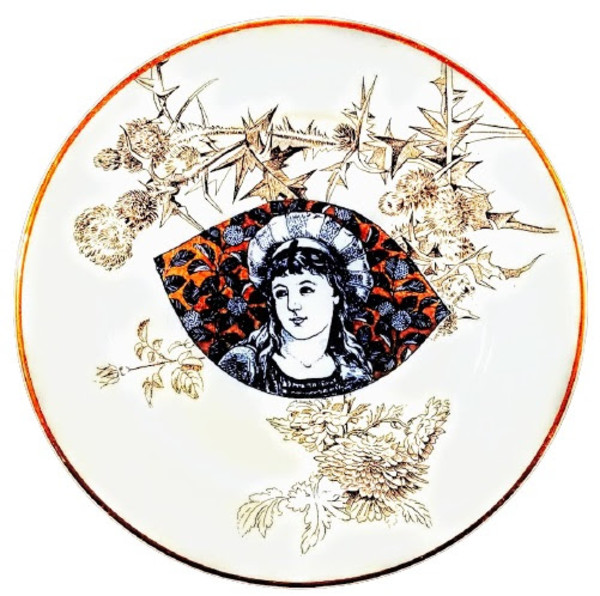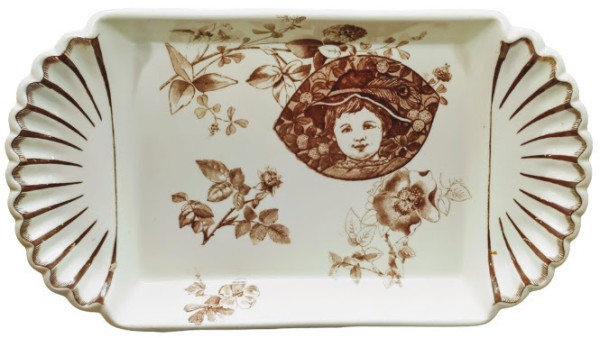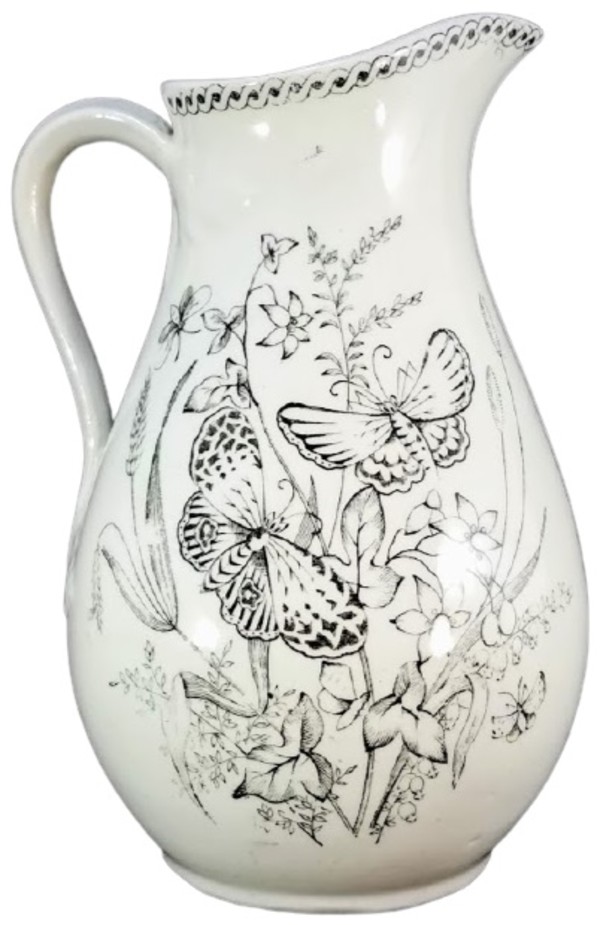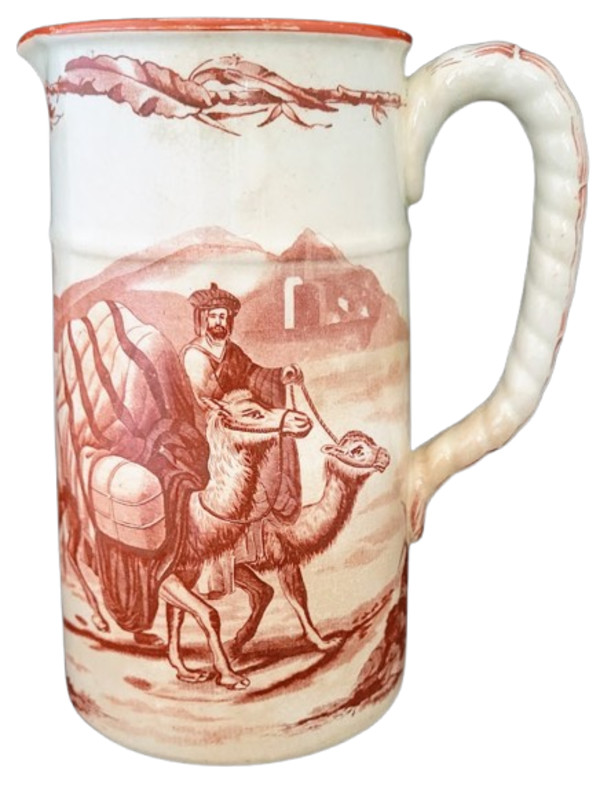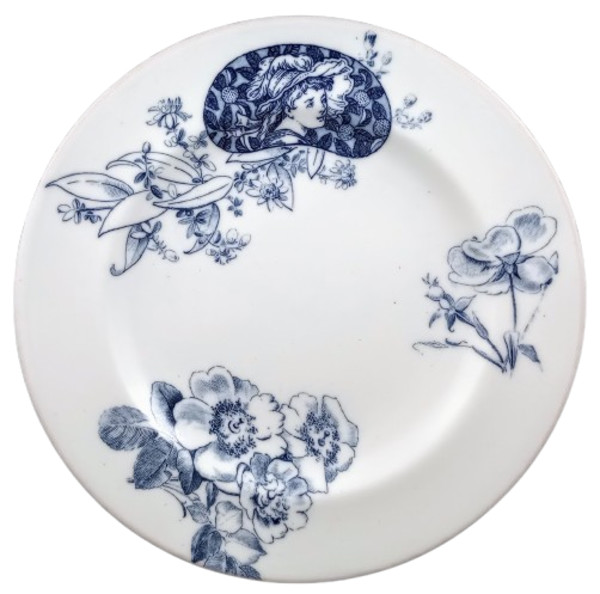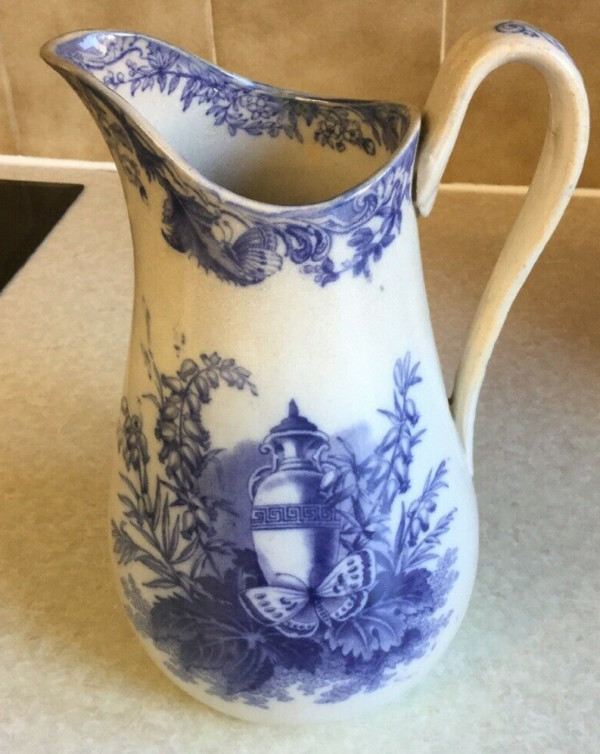- Josiah Wedgwood
- Unnamed (Cameo Head), 1883
- Earthenware
- 6 x 6 in (15.24 x 15.24 cm)
-
Not For Sale
Tile, 6 x 6 inches. Blue transfer. Maker's mark for Josiah Wedgwood. In c. 1880-1883, Thomas Allen designed a series of images for tiles and dinnerware for Josiah Wedgwood. Some of the designs were included as a series of 7 subjects intended for tiles known as "Hats." Each illustrated a child in a different hat, contained within an oval, oblong, or lemon-shape, and set against a background of fruit, flower sprigs, and sprays. Thomas Allen also designed a series of 4 subjects known as "Cameo Heads." No known source lists all eleven designs, but it seems some at least were interchangeable. This cameo head appears in an oval filled with citrus fruits and leaves and consists of a young girl in profile with hair down wearing a hat. The oval is framed by sprigs of flowers.
Josiah Wedgwood was born in Burslem, Staffordshire, on July 12, 1730, into a family with a long tradition as potters. At the age of nine, after the death of his father, he worked in his family's pottery. In 1759 he set up his own pottery works in Burslem. There he produced a highly durable cream-colored earthenware that so pleased Queen Charlotte that in 1762 she appointed him royal supplier of dinnerware. From the public sale of Queen's Ware, as it came to be known, Wedgwood was able, in 1768, to build near Stoke-on-Trent a village, which he named Etruria, and a second factory equipped with tools and ovens of his own design. At first only ornamental pottery was made in Etruria, but by 1773 Wedgwood had concentrated all his production facilities there. During his long career Wedgwood developed revolutionary ceramic materials, notably basalt and jasperware. After Wedgwood's death in Etruria on January 3, 1795, his descendants carried on the business, which still produces many of his designs.
- Subject Matter: Aesthetic (Cartouche)
- Collections: Aesthetic Tiles, Aesthetic Transferware, Josiah Wedgwood
